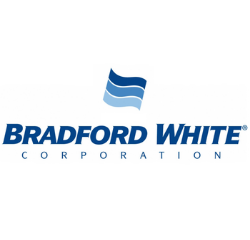
By Bradford White Corporation
Since taking office earlier this year, the Trump Administration has not been shy about his disdain for some federal appliance energy efficiency incentives and programs, as well as how they would like to reduce or eliminate them altogether. With the United States House of Representatives approving the One Big Beautiful Bill Act (OBBBA), one key residential appliance tax incentive that was previously approved as part of the federal Inflation Reduction Act (IRA) is one step closer to elimination at the end of this year.
The IRA included a provision that allowed taxpayers to claim an individual income tax credit, known colloquially as the “25C tax credit” that amounted to 30-percent of the cost they incurred from purchasing and installing an energy efficient appliance at their primary residence. The credit would apply only to an appliance that met the Consortium for Energy Efficiency’s (CEE) highest efficiency tier, that is not the advanced tier. The credit was capped at $600 for the cost of an appliance, with heat pump appliances qualifying for double that amount. Despite the IRA being signed into law by President Biden in 2022, the Internal Revenue Service was still in the process of combing through the fine details as it related to enforcing the disbursement of these credits.
However, provisions in the House-passed OBBBA would eliminate these credits completely. In an effort to pay for some of the increased spending inherent in other areas of the bill, the House of Representatives passed legislation that stripped this, and other tax credits created in the IRA, out of federal statute. Whether or not there are any serious efforts in the Senate to save the tax credits from getting the axe remains to be seen, but without any such efforts, it would appear that the 25C tax credits have one foot in the grave.
Another program that is in question is the ENERGY STAR® program that is administered jointly by the United States Department of Energy and the Environmental Protection Agency (EPA). It is a voluntary program in which manufacturers can certify their energy efficient appliances to the program’s specifications and then market them to consumers as meeting ENERGY STAR requirements. The program also serves as a baseline for many third-party appliance rebate and incentive programs across the country.
Recently, EPA Administrator Lee Zeldin testified before Congress that he believed the program could be privatized and that it did not necessarily need to be administered by federal government entities. This has led to the belief that some in the Trump Administration and Congress are angling to eliminate the program, though there does also seem to be plenty in Congress that still support it remaining under the guise of the federal government, potentially setting up a debate in Washington on this matter.
If the ENERGY STAR program were to be eliminated, there would be potential for market confusion as it relates to product incentives. For the dozens of utilities and other third-parties around the country that utilize program certification for a benchmark, these programs would be required to utilize appliance specifications from alternative bodies to anchor their program’s minimum requirements. It is additionally unlikely that each of these third parties would be persuaded to cite the same alternative body, creating a patchwork of rebate requirements among municipalities, utilities, and other third-party incentive providers that may become very difficult for contractors and consumers alike to understand.
While the Congress and the Trump Administration has certainly indicated their intentions, both actions discussed above maybe ways off. Anything can happen in Congressional politics, especially with the margins being as thin as they are (a five-seat majority for Republicans in the 435-member House of Representatives; a six-seat majority for Republicans in the 100-member Senate). However, BWC Government and Regulatory Affairs staff will continue to carefully watch these activities and provide updates to help you, and your business navigate the new economic climate that is shaped by federal policies.
If you have any questions about this topic, or any others related to government and regulatory affairs in our industry, BWC’s Government and Regulatory Affairs team would like to speak with you. Also, if you know of any legislative or regulatory activity in your community or state that would impact our industry, please do not hesitate to contact us at BWCGovReg@bradfordwhite.com.
